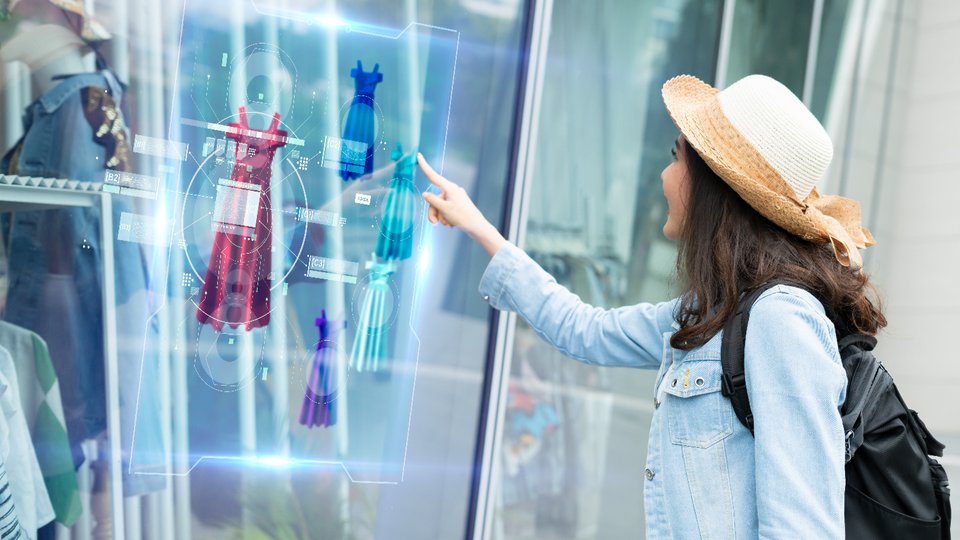AI
Why AI, machine learning are gaining retail ground
Honeywell research reveals artificial intelligence will shape global retail this year with nearly six in 10 retailers planning to embrace the technology. The reasons are plentiful.

February 20, 2024 by Judy Mottl — Editor, RetailCustomerExperience.com & DigitalSignageToday.com
If it seemed 2023 was all about artificial intelligence and nothing else in retail technology, this year bodes to be a repeat given increasing adoption of AI, machine learning and computer vision technology.
Six in 10 retailers plan to embrace all three technologies within the next year and the adoption wave will shape global retail in the next year, according to a Honeywell survey. It's a huge shift given just 35% of retailers report using these technologies at a large scale.
Nearly half (48%) polled identified AI, ML and CV as the top technologies expected to have a significant impact on the retail industry over the next three to five years.
Retailers aren't eyeing the tech to shave workforce and reduce labor costs. They view the technologies as a way to complement and enhance the workforce while at the same time enhancing the retail customer experience.
Survey respondents predict AI, ML and CV will bring the greatest value to four functions in retail: automating and supporting day-to-day tasks, such as picking and scheduling; supporting customer service, including live chat, for digital channels; creating targeted customer marketing campaigns and improving inventory management.
The survey, which polled 1,000 retail leaders in the U.S., Europe, Middle East and Africa, also revealed additional highlights including:
- 38% of those surveyed are using these technologies for select use cases or regions.
- 35% are using them on a larger scale.
- 24% are in a pilot phase or in discussions.
- Only 3% said they were not using these technologies at all.
The top three reasons retail leaders provided for deploying the technologies included:
- Improving customer experience (59%).
- Driving greater productivity (49%).
- Achieving cost efficiencies / return on investment (ROI) (44%).
Retail Customer Experience reached out to David Barker, president of Honeywell PSS, for deeper insight on the findings as well as how AI will shape the future of retail.
Q. How would you describe where AI and ML stand respectively within retail overall, and then within retail as a CX tool?
A. Retailers are increasingly recognizing the power of AI and ML to transform their operations. These technologies work to reduce obstacles, enhance efficiency, and increase productivity, ultimately elevating the experience for both employees and shoppers. From a shopping experience perspective, these technologies enable retailers to provide more tailored and personalized experiences and foster seamless collaboration between associates and customers to enrich the overall shopping journey.
Additionally, forward-thinking retailers have adopted robotic solutions that harness AI and ML within their e-commerce operations to optimize and automate a range of tasks and processes. As an example, Honeywell's AI-powered robots employ advanced gripping and vision technologies to enhance the capabilities of your human workforce in tasks such as retrieving, sorting, and fulfilling orders. These state-of-the-art robotic solutions not only streamline inventory management but also lead to faster and more precise order fulfillment, thus improving overall operational efficiency.
Q. Were you surprised by the study results, and if so, why, and if not, why?
A. In today's hyper-competitive retail environment, where retailers are tapping into new technologies to improve the customer experience and gain an edge, we were unsurprised by the study results. Shoppers increasingly value personalized, innovative, and frictionless shopping journeys and emerging technologies are now readily available to help retailers boost loyalty, improve productivity, and enrich experiences. The increased adoption of AI, ML, and CV technologies by six in 10 retailers within the next year reflects the industry's recognition that these technologies are crucial to addressing the needs and demands of tomorrow's consumers.
Q. From looking at the research data points, is there some dichotomy given nearly half of those polled view AI and ML and CV as having a significant impact on retail in the next 3 to 5 years, yet just 35% are using them at a large scale?
A. The lag in the broader adoption of these technologies might be a factor of the current economic climate. According to our survey, more than a third of respondents mentioned budget constraints as a key barrier to implementation. In addition, retailers may want to implement these technologies gradually and strategically through small pilot projects rather than jumping immediately to widespread adoption.
However, there seems to be broad recognition among leaders that these technologies are integral to the future of retail, as these advancements can increase productivity, help improve inventory accuracy, and boost customer service, among other benefits. Organizations will set themselves apart based on their skilled utilization of these technologies.
Q. What is holding retailers back from embracing the technologies?
A. The widespread adoption of AI, ML and CV in retail faces several roadblocks. These barriers predominantly revolve around budget constraints, with 39% of surveyed retailers grappling with limited financial resources, complicating their ability to invest in and expand the use of these technologies. Additionally, companies are encountering challenges in showcasing business value, particularly when demonstrating return on investment and its impact on customer satisfaction.
Given these hurdles, retailers should consider how their existing digital investments can serve as building blocks toward maturing AI applications. For example, mobility devices, wearables, IoT, and robotics — combined with software solutions utilizing AI, ML, and CV — can collectively generate actionable insights into customer preferences.
Leaders can also make the business case for the role of technology in optimizing labor resources and operations. AI, ML, and automation help to reduce obstacles, enhance efficiency, and increase productivity, ultimately elevating both the employee and customer experience.
Q. What will it take to drive more retailers to embrace the technologies?
A. To drive greater adoption, it is important to convey the business value by giving real-world examples of how AI has been used to help retailers, particularly focusing on examples where AI enhanced the customer experience. For example, one major retailer has integrated AI-based technology on handheld devices to compare product images within their stores to store-specific planograms. This technology offers an immediate assessment of shelf-level compliance, giving store associates confidence that their customers will find the products they are looking for in the right place (or empowering them to act quickly if there are any misplaced items). As AI becomes more common, it is essential to convey the strategic objective and demonstrate how it contributes to a business's ROI.
As more retailers witness the successes of early adopters and experience tangible benefits, they are likely to overcome hesitations and embrace these transformative tools, benefiting their operations and customer experiences.
 ChatGPT
ChatGPT Grok
Grok Perplexity
Perplexity Claude
Claude




